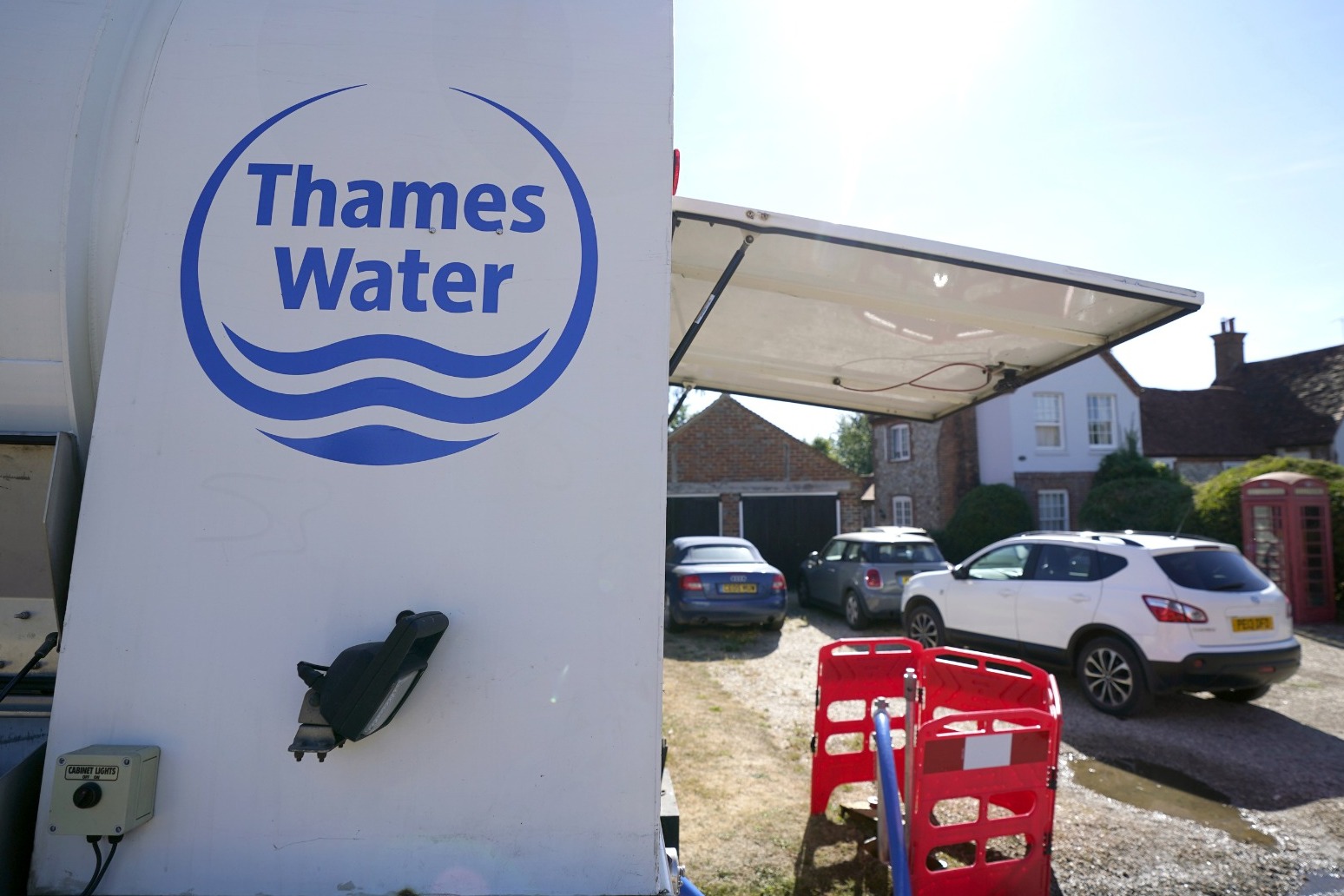-
 play_arrow
play_arrow
Kl 1 Radio Local radio for west Norfolk
-
 play_arrow
play_arrow
KL DISCO KL Disco Playing Disco Music from the 70's onwards.24/7
-
 play_arrow
play_arrow
KL COUNTRY KL COUNTRY Playing New and Classic Country Music 24/7
-
 play_arrow
play_arrow
KL ROX KL ROX The best of New and Classic Rock.24/7
-
 play_arrow
play_arrow
KL SUMMER Summer Vibes 24/7 from KL1 Radio across West Norfolk
-
 play_arrow
play_arrow
KL CLASSICAL Your Symphony Starts Here
-
 play_arrow
play_arrow
KL CHILL Just Chill!
-
 play_arrow
play_arrow
KL POP The Best POP Hits all day Long!
-
 play_arrow
play_arrow
KL XTRA KL XTRA
music_note

Household water bills in England and Wales are to rise by an average £19 a year over the next five years – a third less than the increase requested by companies, under draft proposals announced by Ofwat.
The regulator says water firms proposed increases averaging £144 over five years. For example, Thames Water’s proposed increase of £191 by 2030 has been reduced to £99, while Severn Trent’s proposed rise of £144 has been cut to £93. There are significant variations in price changes between firms. Under the plans, Southern Water customers will face a £183 increase over five years, while Dwr Cymru customers’ bills will go up by £137 and Yorkshire Water customers will pay £107 more. At the other end of the scale, Affinity customers will see just an £11 rise, while SES customers’ bills will fall by £34 on the previous five years. Ofwat chief executive David Black said: “Customers want to see radical change in the way water companies care for the environment. Our draft decisions on company plans approve a tripling of investment to make sustained improvement to customer service and the environment at a fair price for customers. “These proposals aim to deliver a 44% reduction in spills from storm overflows compared to levels in 2021. We expect all companies to embrace innovation and go further and faster to reduce spills wherever possible. “Today’s announcement also increases the resilience of our water supplies to the impact of climate change and will reduce how much water is taken from rivers by enabling a range of long-term water supply projects, which includes plans for nine reservoirs. “Let me be very clear to water companies – we will be closely scrutinising the delivery of their plans and will hold them to account to deliver real improvements to the environment and for customers and on their investment programmes.” Mike Keil, chief executive of the Consumer Council for Water (CCW), said: “Millions of people will feel upset and anxious at the prospect of these water bill rises and question the fairness of them given some water companies’ track record of failure and poor service. “Customers understand investment is urgently needed but they need reassurance that every pound of their money is going to be well spent. “Trust in water companies has never been lower and that won’t change until people see and experience a difference – whether that’s having the confidence to swim at their favourite beach or receiving help if they are struggling to pay their bill. “We estimate about two million households in England and Wales currently cannot afford their water bill and, while the increase in financial assistance is welcome, it falls short of what is needed. “Over the summer we’ll be carrying out research with customers of every water company to gauge whether they feel the regulator’s proposals are affordable and deliver what people want. We expect Ofwat to listen and act on what customers tell us.” The proposals are part of the 2024 Price Review (PR24) and cover the period from 1 April 2025 to 31 March 2030, ahead of a final decision at the end of the year. Ofwat said the average 21% bill increase, around £19 per year, follows firms’ proposals to increase their total spending by £29 billion, split between a £5 billion increase in the core costs for running their business and a £24 billion rise in spending to meet requirements set by governments and for other environmental improvements. Ofwat said its scrutiny of companies’ cost proposals, to ensure they deliver efficiently, had led to a £16 billion reduction. However the proposed bill increases come amid public fury around firms’ rampant polluting of waterways with sewage spills as they continue to hand dividends to shareholders, and bonuses to executives – something which Labour has pledged to clamp down on. Sewage spills into England’s rivers and seas more than doubled in 2023. According to the Environment Agency, there were 3.6 million hours of spills last year – equal to about 400 years – compared with 1.75 million hours in 2022. The large amount of water lost to leaks in the system also raises widespread concerns, particularly in dry periods when consumers face hosepipe bans.
Published: by Radio NewsHub

Similar posts
Upcoming shows

Ian Campfield – KL1 Afternoons
1:00 pm - 4:00 pm

Richard Dix – KL1 Drive
4:00 pm - 7:00 pm

80’s ’til 8
7:00 pm - 8:00 pm

Gary Steele – Rock Show
8:00 pm - 11:00 pm

Night Trax
12:00 am - 7:00 am
-

The UK and New Zealand are to pursue stronger defence ties and boost support for Ukraine

Catholics mourn merciful Pope after death aged 88 following stroke

Court hears of high street masturbation, man threatening train station worker and drug-drivers

Live Music – Man The Lifeboats

Breast of Friends Chairty Ball
Message Us
Copyright The Mediasite UK - 2025



